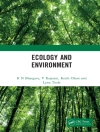The Origin of Species by means of Natural Selection – Charles Darwin – ‘The Origin is one of the most important books ever published, and a knowledge of it should be a part of the intellectual equipment of every educated person. . . . The book will endure in future ages so long as a knowledge of science persists among mankind.’ Nature It took Charles Darwin more than twenty years to publish this book, in part because he realized that it would ignite a firestorm of controversy. On the Origin of Species first appeared in 1859, and it remains a continuing source of conflict to this day. Even among those who reject its ideas, however, the work’s impact is undeniable. In science, philosophy, and theology, this is a book that changed the world.In addition to its status as the focus of a dramatic turning point in scientific thought, On the Origin of Species stands as a remarkably readable study. Carefully reasoned and well-documented in its arguments, the work offers coherent views of natural selection, adaptation, the struggle for existence, survival of the fittest, and other concepts that form the foundation of modern evolutionary theory. This volume is a reprint of the critically acclaimed first edition.
Про автора
Charles Robert Darwin was an English naturalist, eminent as a collector and geologist, who proposed and provided scientific evidence that all species of life have evolved over time from common ancestors through the process he called natural selection. The fact that evolution occurs became accepted by the scientific community and the general public in his lifetime, while his theory of natural selection came to be widely seen as the primary explanation of the process of evolution in the 1930s, and now forms the basis of modern evolutionary theory. In modified form, Darwins scientific discovery remains the foundation of biology, as it provides a unifying logical explanation for the diversity of life.Darwin developed his interest in natural history while studying medicine at Edinburgh University, then theology at Cambridge. His five-year voyage on the Beagle established him as a geologist whose observations and theories supported Charles Lyells uniformitarian ideas, and publication of his journal of the voyage made him famous as a popular author. Puzzled by the geographical distribution of wildlife and fossils he collected on the voyage, Darwin investigated the transmutation of species and conceived his theory of natural selection in 1838. Although he discussed his ideas with several naturalists, he needed time for extensive research and his geological work had priority. He was writing up his theory in 1858 when Alfred Russel Wallace sent him an essay which described the same idea, prompting immediate joint publication of both of their theories.His 1859 book On the Origin of Species established evolution by common descent as the dominant scientific explanation of diversification in nature. He examined human evolution and sexual selection in The Descent of Man, and Selection in Relation to Sex, followed by The Expression of the Emotions in Man and Animals. His research on plants was published in a series of books, and in his final book, he examined earthworms and their effect on soil.In recognition of Darwins pre-eminence, he was one of only five 19th century UK non-royal personages to be honoured by a state funeral, and was buried in Westminster Abbey, close to John Herschel and Isaac Newton.












